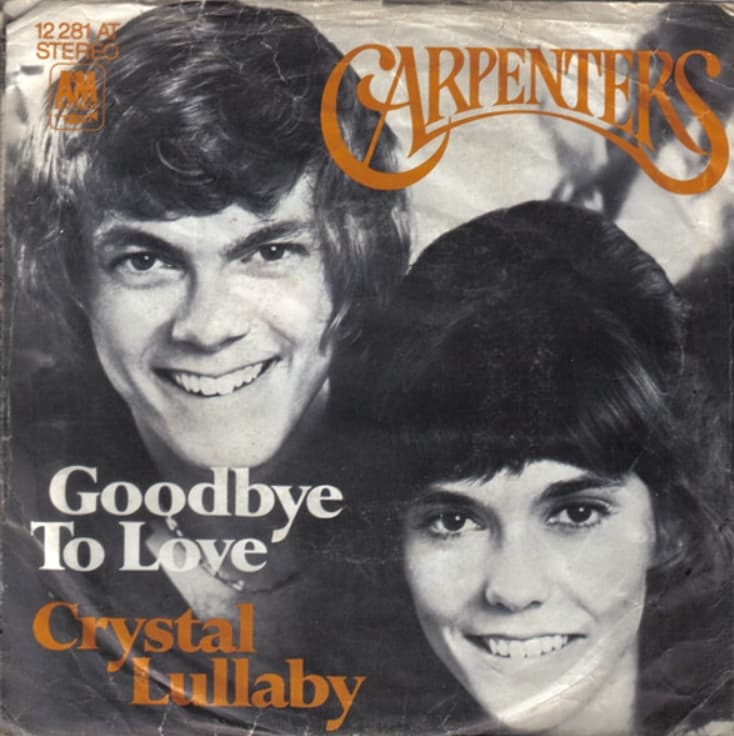
“Goodbye to Love” by The Carpenters: A Revolutionary Power Ballad
When The Carpenters released “Goodbye to Love” in 1972, it was a moment that marked a turning point not only in their career but also in the history of popular music. Written by Richard Carpenter and John Bettis, this song was a daring departure from the soft, melodic sound that had come to define the duo. Instead, it introduced an unexpected element—a fuzz guitar solo—that would forever change the landscape of the love ballad.
The inspiration for “Goodbye to Love” came to Richard Carpenter during a trip to London, where he watched the 1940 Bing Crosby film, Rhythm on the River. In the movie, a struggling songwriter’s greatest composition, titled “Goodbye to Love,” is frequently mentioned, though never actually heard. This intrigued Carpenter, who immediately saw potential in the title. He began to craft the tune and the opening lyrics, but he knew he needed help to bring the song to life. Upon returning to the United States, Carpenter enlisted the help of his longtime collaborator, John Bettis, to finish the lyrics.
The result was a song that begins with a haunting melody and introspective lyrics, reflecting on the pain of unrequited love. Karen Carpenter’s rich, emotive voice brought these words to life, but it was the unexpected addition of a fuzz guitar solo that truly set the song apart. Tony Peluso, a guitarist known for his work with the band Instant Joy, was invited to play the solo. Initially hesitant, Peluso was encouraged by Richard Carpenter to “soar off into the stratosphere,” creating a sound that was both jarring and beautiful, perfectly complementing the song’s melancholic mood.
Upon its release on June 19, 1972, “Goodbye to Love” quickly climbed the charts, reaching No. 7 on the Billboard Hot 100. It was the first hit written by the Carpenter/Bettis songwriting team to break into the US top ten. In the UK, the song was initially released as the B-side to “I Won’t Last a Day Without You,” but after the sides were switched, it reached No. 9 on the UK Singles Chart, solidifying the Carpenters’ reputation as a force in the music world.
However, not everyone was pleased with the song’s innovative approach. The Carpenters received hate mail from fans who felt betrayed by the introduction of a rock element into what was expected to be a gentle love song. Despite this backlash, or perhaps because of it, “Goodbye to Love” has since been recognized as one of the first true power ballads—a song that blends the emotional depth of a ballad with the intensity of rock music.
Today, “Goodbye to Love” is remembered not only as a classic Carpenters hit but as a pioneering piece of music that paved the way for countless other artists. Its legacy is one of innovation, showing that even the most unexpected elements can come together to create something truly timeless.